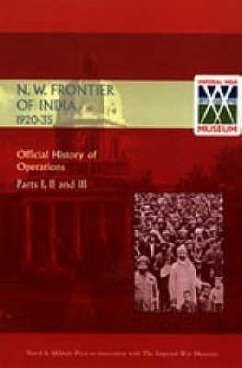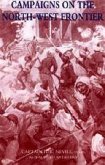The sixteen years between the suppression of tribal rebels in Waziristan and the unrest which welled up there in 1936 were something of a golden age for the British administration in the region. The tribes were quiescent and a 'steady drive by the Government to inculcate civilized ideas' went ahead unopposed. Even as nationalist agitation organised by the Indian National Congress convulsed other parts of the sub-continent, the tribes of the North-West frontier remained quiet. This volume of the Official History of militarty operations in the turbulent region attributes this relative passivity to the tribes having been humbled in 1919/20, and to the efficient deployment of troops by the authorities: 'The fact that there was little fighting and few major clashes...only demonstrates how little opportunity was afforded to the enemy. It shows how prudent were the dispositions and planning of Commanders and how efficient the bearing of the troops'. But the history concludes with words of warning that have a grim echo in the same troubled region today: ' Wars between 1st class modern powers come and go. Armaments and battle grounds change with each upheaval. The tribes of the North-West Frontier of India however remain as heretofore an unsolved problem. The Indian Army of the future will still have to deal with Mohmands and Afridis, Mahsuds and Wazirs...history repeats itself. Let it be read profitably.'








